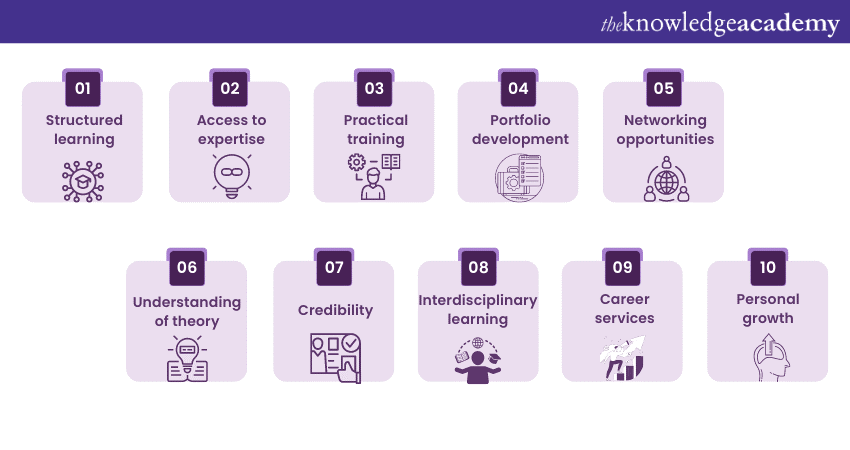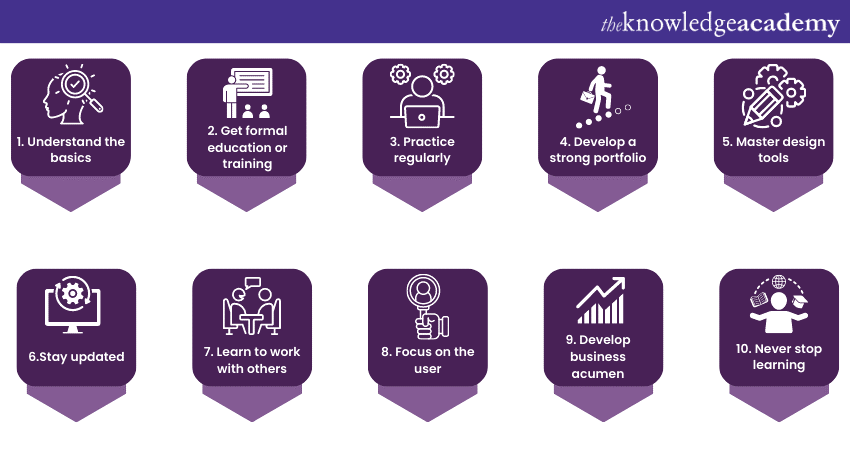We may not have the course you’re looking for. If you enquire or give us a call on 01344203999 and speak to our training experts, we may still be able to help with your training requirements.
Training Outcomes Within Your Budget!
We ensure quality, budget-alignment, and timely delivery by our expert instructors.

In today's digital age, where user experiences shape our interactions with technology, the role of UI/UX Designers has gained remarkable significance. This blog expands on the intriguing question, "Is UI/UX Design a Good Career?" As industries embrace technology-driven solutions, the demand for skilled UI/UX Designers has surged, offering an enticing avenue for creative minds seeking professional success.
According to Indeed UK, the average starting salary for a UX Designer is about 43,860 GBP. If this career intrigues you, read this blog to understand UI/UX Design fundamentals and its pivotal role in enhancing user engagement and satisfaction. Further, we will also uncover essential criteria to help you evaluate if this career aligns with your aspirations and skills. While a formal UI/UX degree can provide valuable insights, we'll dissect the pros and cons, enabling you to make an informed choice.
Moreover, we'll offer invaluable guidance on cultivating the necessary skills and habits to excel as a UI/UX Designer. From mastering design tools to understanding user psychology, we'll outline best practices to set you on the path to becoming a sought-after professional in this field.
Table of Contents
1) An overview of UI/UX Design
2) How to decide if UI/UX Design is a good career for you?
3) Importance of having a degree in UI/UX Design
4) Best practices to become a UI/UX Designer
5) Conclusion
An overview of UI/UX Design
User Interface (UI) and User Experience (UX) Design are critical elements in the digital landscape. UI Design refers to the visual aspects of a website, app, or any digital platform, including layout, colour schemes, and interactive elements. It's all about creating an interface that is not just aesthetically pleasing but also intuitive and easy to navigate.
On the other hand, UX Design focuses on the user's journey and overall experience while interacting with the platform. It involves understanding users' needs and expectations and designing a smooth, efficient, and enjoyable journey to meet them. UX Designers conduct user research, create user personas and map out user journeys, striving to make the interaction as satisfying as possible.

How to decide if UI/UX Design is a good career for you?
Deciding if UI and UX Design is the right career path for you is a personal decision that should consider your interests, skills, and long-term professional goals. Here are some factors to consider that can help you make this decision:

a) Passion for design and technology: UI/UX Design lies at the intersection of design and technology. If you're someone who is intrigued by aesthetics, creative problem-solving, and technology, then this field may captivate your interest.
b) Empathy for users: UI/UX Design is about creating user-centric products. It is critical to empathise with users and understand their needs, motivations, and pain points. If you can put yourself in others' shoes and see things from their perspective, you could excel in UX design.
c) Desire to solve problems: UX Design is a problem-solving discipline at its core. It involves identifying usability issues or needs and coming up with innovative solutions. If you enjoy problem-solving and have a knack for thinking outside the box, this field could be a good fit for you.
d) Continuous learning: The digital landscape evolves with new tools, trends, and best practices. If you enjoy learning and are willing to stay updated with these changes, then you may find this field exciting and fulfilling.
e) Career opportunities and outlook: UI/UX Design is in high demand across various industries due to the increasing need for well-designed digital interfaces. If job security and ample opportunities for career growth are important to you, this field can provide that.
f) Ability to work across industries: UI/UX Designers can work in virtually any industry with a digital presence, from tech and finance to healthcare and education. If you're looking for a field with diverse opportunities, UI/UX Design can be a great choice.
g) Enjoy collaboration: UI/UX Design is often a team effort. It involves working closely with other designers, developers, product managers, and stakeholders. This field could suit you if you enjoy collaborating and can effectively communicate your ideas and feedback.
h) Creative freedom: UI/UX Design offers a good deal of creative freedom. You'll often be tasked with creating unique solutions to users' problems, which can be intellectually stimulating and satisfying.
Learn to understand prototype testing for applications by signing up for the UX/UI Design Jumpstart Course now!
Importance of having a degree in UI/UX Design
A degree in UI and UX Design can be critical in launching a successful career in this field. While it's true that many successful UI/UX Designers are self-taught or have gained their knowledge through various online courses and resources, having a formal degree also offers advantages. Here are some key points to consider before you choose to pursue a degree:

a) Structured learning: A UI/UX Design degree programme provides a well-structured and comprehensive curriculum covering all UI/UX design aspects, from foundational principles to advanced concepts. This curriculum is designed to develop your skills and knowledge progressively.
b) Access to expertise: In a degree programme, you have direct access to lecturers and professors who are experts in the field. They can provide guidance, share their experiences, and answer your queries, enhancing your learning process.
c) Practical training: Most degree programmes include hands-on projects and practical training that allows you to apply the concepts and techniques you've learned. This experience is invaluable when starting out in the professional world.
d) Portfolio development: Throughout your degree, you'll work on several projects, allowing you to build a strong portfolio of work. This portfolio is a crucial tool when applying for jobs or freelance work, as it showcases your abilities to potential employers or clients.
e) Networking opportunities: University or college provides a great networking platform. You can connect with fellow students, participate in workshops or conferences, and even meet industry professionals. These connections can prove beneficial when looking for internships or job opportunities.
f) Understanding of theory: A degree programme delves deep into the theoretical aspects of UI/UX Design. This understanding of theory aids in better comprehension of practical applications and can enrich your design thinking process.
g) Credibility: While not always the case, some employers may prefer or require a degree in the field. A degree can add to your credibility and increase your chances of securing a job or advancing your career.
h) Interdisciplinary learning: Many degree programmes expose students to related disciplines like psychology, human-computer interaction, and visual communication. This interdisciplinary learning can provide a broader understanding and enhance your design skills.
i) Career services: Many universities offer career services, including resume workshops, interview preparation, and job placement assistance. These services can ease the transition from education to employment.
j) Personal growth: Pursuing a degree allows for personal development. It teaches you discipline, time management, and the ability to work as part of a team, all of which are beneficial in any career.
Acquire the knowledge to create an attractive and responsive web page by signing up for the Responsive Web Design Training Course now!
Best practices to become a UI/UX Designer
Becoming a successful User Interface (UI) and User Experience (UX) Designer is an intriguing journey which involves constant learning, practising, and updating your skills to keep pace with the ever-evolving digital landscape. Here are some best practices to guide you on your path to becoming a proficient UI/UX Designer:

a) Understand the basics: Start by thoroughly understanding the core principles of UI and UX Design. Learn about design elements, user research, wireframing, prototyping, usability testing, and other key aspects of the field.
b) Get formal education or training: While not strictly necessary, having a formal education in UI/UX Design or a related field can provide a structured learning path and access to expert mentors. Alternatively, numerous online courses and boot camps offer comprehensive training.
c) Practice regularly: Design is a skill that improves with practice. Take on projects, participate in design challenges, or redesign existing apps or websites for practice. This not only sharpens your skills but also helps build a robust portfolio.
d) Develop a strong portfolio: A portfolio showcases your design skills and thought process to potential employers. Ensure it includes a variety of projects, clearly demonstrates your role in each, and shows the problem-solving journey from initial research to final design.
e) Master design tools: Familiarise yourself with industry-standard design tools like Sketch, Adobe XD, Figma, and InVision. Being proficient in these tools is crucial to translate your ideas into functional designs effectively.
f) Stay updated: The field of UI/UX Design is constantly evolving, with new trends, techniques, and tools emerging regularly. Following industry blogs, joining design communities, and attending webinars or conferences can help you stay updated.
g) Learn to work with others: UI/UX Design is often a collaborative effort involving stakeholders, developers, marketers, and of course, users. Learn to communicate your ideas clearly, accept feedback graciously, and work effectively as part of a team.
h) Focus on the user: Remember, the user is at the heart of UI/UX Design. Always design with the end-user in mind. Conduct user research, create personas, map user journeys, and perform usability testing to ensure your designs meet user needs and expectations.
i) Develop business acumen: Understanding business objectives, market trends, and competitor analysis can help you design solutions that not only please users but also align with business goals.
j) Never stop learning: The learning journey for a UI/UX Designer never ends. Stay curious, keep exploring, and continually refine your skills.
Conclusion
The decision about whether UI/UX Design is a Good Career for you depends on your passion for design, empathy for users, love for problem-solving, and willingness to learn continuously. Given the high demand and diverse industry opportunities, it's an enticing career choice for those aligned with these attributes. The journey may be challenging, but it can be immensely rewarding for those with the right mindset.
Learn the various strategies for user experience by signing up for the User Experience (UX) Masterclass now!
Frequently Asked Questions
Upcoming Programming & DevOps Resources Batches & Dates
Date
 UI UX Design Course
UI UX Design Course
Mon 20th Jan 2025
Mon 3rd Mar 2025
Mon 5th May 2025
Mon 7th Jul 2025
Mon 15th Sep 2025
Mon 3rd Nov 2025







 Top Rated Course
Top Rated Course


 If you wish to make any changes to your course, please
If you wish to make any changes to your course, please


